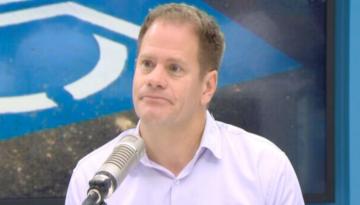In a city like Wellington - built almost entirely on steep hills and mountainsides - how do those who live with disabilities find homes which are fit for purpose?
One in four Kiwis identifies as having a disability. In the capital, 22 percent of the residents have some sort of impairment, with mobility being the most common.
Finding a house in Wellington is no easy feat - and one which caters to people with disabilities is even harder.
The city's lack of accessible housing made Erin Gough's life miserable for almost seven months.
She relies on the use of a wheelchair, and the shortage of appropriate housing in Wellington meant she had to take what she could get - an apartment in town with a bathroom she couldn't use.
"I actually had to shower at work for about seven months," she told Newshub.
But it was more than just an inconvenience. The stress affected all aspects of her daily life.
"It took a huge toll on my mental and physical health. If I wanted to call in sick then I had to weigh up the pros and cons of staying home and not showering," she said.
But cleanliness wasn't the end of her worries.
"One of the key stresses was whether the lift was going to break down in an earthquake, and how I was going to get out in an emergency."
As of December 2019, the agency responsible for housing and urban development, Kainga Ora, says it has 75 properties in the Wellington region which have been modified for people who have some form of disability.
"This work could vary from a small modification, for example, an attachment on a tap for easy use, to a full modification on the property such as a ramp for wheelchair access," a spokesperson told Newshub.
The Crown organisation has committed to ensuring at least 15 percent of its new builds meet universal design standards, with the others meeting "as many as possible".
Disability Rights Commissioner Paula Tesoriero says the policy is a good start - but there's room for improvement.
"Given there are 24 percent of New Zealand population who identify as being disabled and we have an aging population, I hope we continue to be aspirational around that target," she told Newshub.
"We can do better and we should be far greater accessible capital city."
Tesoriero says accessible housing is one of the most pressing issues facing disabled Kiwis.
For now, Erin Gough lives in a modified property with her friend, who is also a wheelchair user. The house was bought by her flatmate's family and modified to be fully accessible.
She says the house has been life-changing, but it shouldn't have to be.
"Being able to get outside in an emergency shouldn't feel like a big deal, but it does and having an accessible place to live shouldn't feel like a lottery, but at the moment, it is."
A lottery she has won - and the prize is peace of mind.



